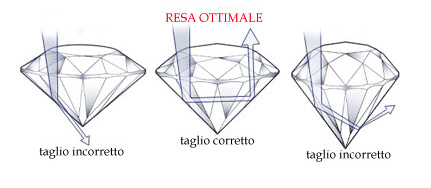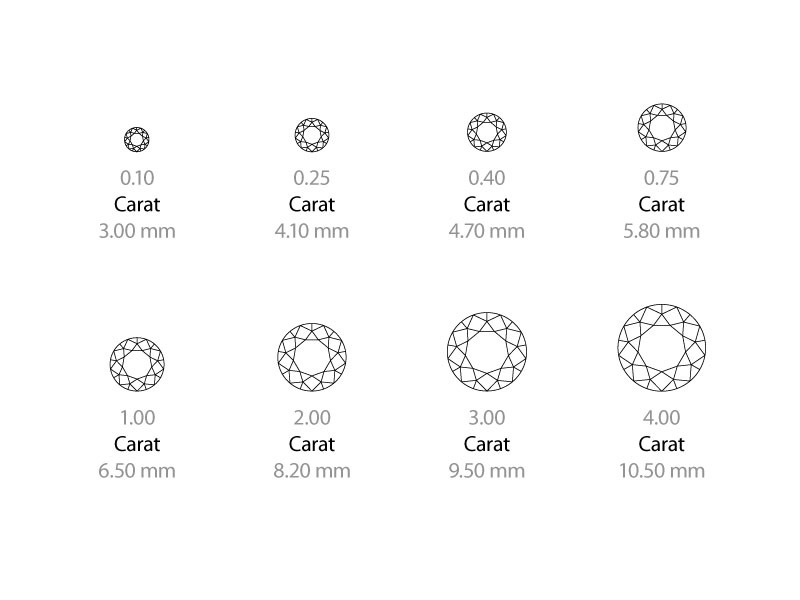A DIAMOND IS FOREVER
The purchase of a diamond represents one of the best forms of investment in the medium and long term for the exclusive advantages it offers in terms of freedom and security.
To be certified, a worked diamond undergoes a gemological analysis. The evaluation of the diamond is carried out on the basis of an international classification scale which takes into consideration some fundamental characteristics:
- Color (color): the most used is white; the more the color tends towards white, the more precious the stone is
- Purity (clarity): according to the international classification, if the impurities (inclusions) are not visible under a ten-power loupe, the stone is considered pure
- Cut (cut): the cut must enhance the beauty of the stone without penalizing the weight too much
- Weight (carat): the greater the weight of the stone, the greater its value.
The characteristics described herein are referred to as "the 4 Cs".
But how do you value a diamond?
We proceed by crossing the parameters of color, purity, cut and weight:
Colour: is indicated by the letters: D, E, F, G, H, I, J, K, L, M - where D is the top and indicates an exceptional blue-white diamond , up to M which indicates a straw colour.

Purity: it is indicated with the abbreviations IF, VVS1, VVS2, VS1, VS2, SI1, SI2, SI3, P1, P2, P3;
IF indicates a pure diamond, P indicates a diamond with inclusions visible to the naked eye.

Cut: indicated with "excellent", "very good", "good", "medium", " fair ", "poor";
"very good" indicates an excellent cut, "poor" indicates deviations from the permitted tolerance.

Weight: The weight of a diamond is expressed in a unit of measurement in the metric system, called a carat.
One carat (ct) is equal to 1/5 of a gram or 0.200 grams. A 5-carat gem will weigh 1 gram.


